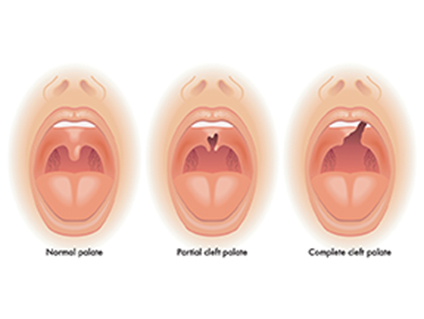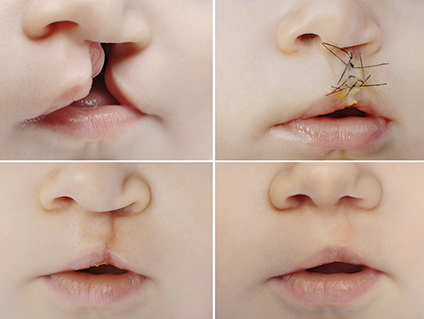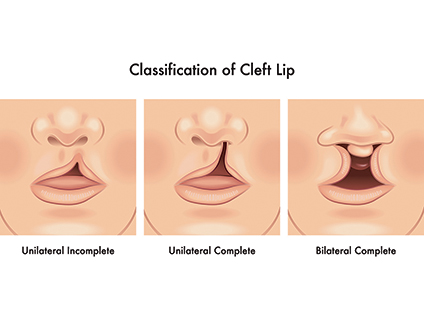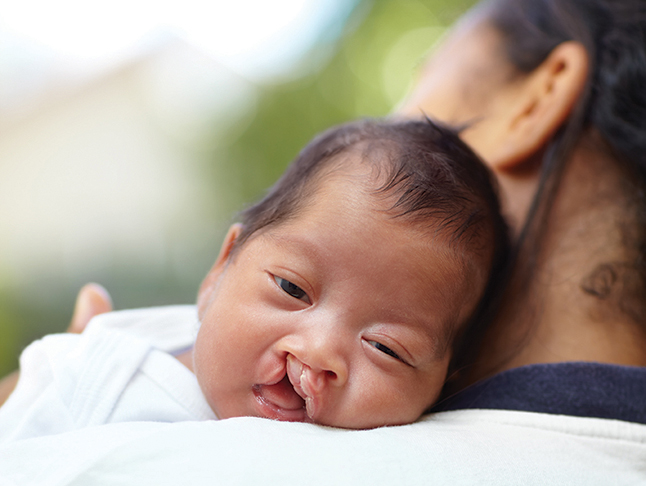Cleft lip and cleft palate are lip and mouth malformations that occur very early in pregnancy, typically before ten weeks. Clefting, or separation between the two sides, happens when the tissue that is available does not join properly. The split can be in the lip, the palate (the roof of the mouth), or both; it can also be unilateral (one side) or bilateral (two sides).
For every 10,000 live births worldwide, 14 babies are born with orofacial clefts, which means that nearly 195,000 babies are born each year with this type of disorder. China and Mexico have a slightly higher than average number of children with craniofacial disorders. In most cases, the cause of cleft lip and palate is unknown and can’t be prevented. Sometimes clefts are part of a larger syndrome and include heart or other organ defects.
Currently, there are over 4.5 million persons living with an unrepaired or inadequately repaired cleft, making them vulnerable to respiratory infections and a higher risk for malnutrition. Even nursing is challenging because the structural anomalies make it impossible to create a seal for suckling. Half of the malnutrition-related deaths in those with clefts could be prevented with access to adequate treatment and support. These risks are regardless of a country’s economic, social, cultural, and political context.
Other problems faced by cleft-related disorders are ear infections and subsequent hearing loss, speech problems, and dental problems. Children with clefts often have missing, extra, malformed, or displaced teeth. The molars may not erupt in a typical manner making it difficult to chew food. The repair of a cleft palate often requires multiple surgeries over many years as the child grows and develops. In the US, most children with clefts also have orthodontic and sometimes prosthodontic care.
While most children born with cleft lip and palate do not have other health issues, sometimes it is part of a group of symptoms and is an identifiable syndrome, like Treacher Collins Syndrome (TCS). TCS is a genetic disorder and includes symptoms like a very large mouth, breathing problems, a small lower jaw, hearing loss, and undersized cheekbones. In the past year, PHF has provided access to medical care for Pedro and Matias with TCS. Your donations transformed their lives.




